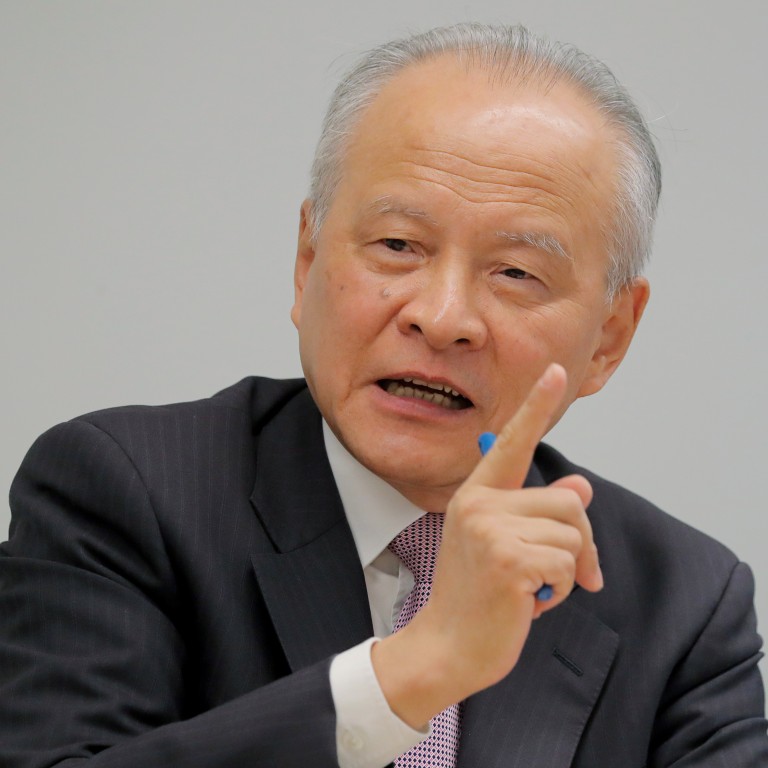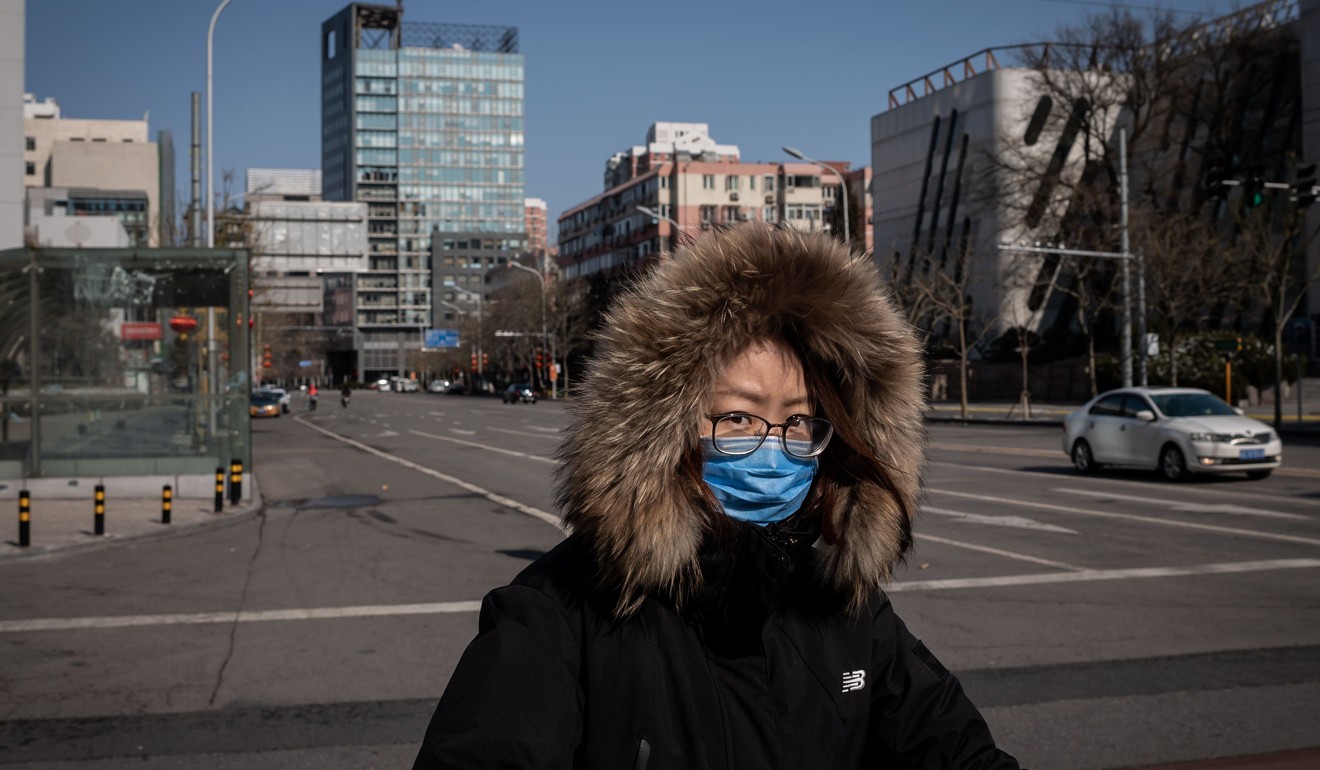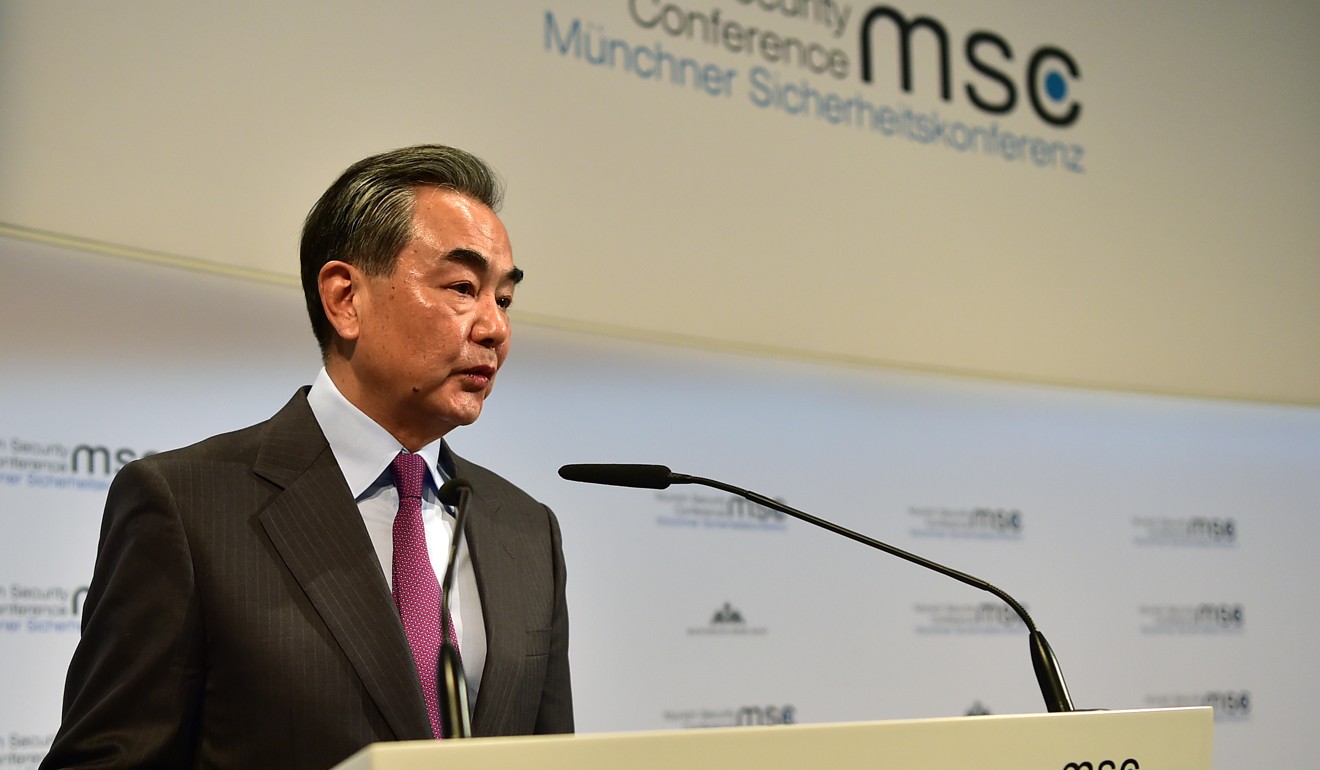
China’s top diplomats ramp up defence of Beijing amid coronavirus crisis
- Foreign minister and envoys to United States and United Nations try to shift blame and lash out at ‘overreaction’ of other countries
- Observers say efforts to fend off criticism of Communist Party and Xi Jinping may do little to help ease public anger and concerns
In the past few days, Foreign Minister Wang Yi and other senior diplomats, including China’s top envoys to the United States and the United Nations, have spoken publicly at international meetings and in media interviews as the country grapples with the epidemic.
But observers said their assertive efforts to fend off criticism of the ruling Communist Party and President Xi Jinping may do little to ease mounting grievances at home, or to quell suspicion that Beijing was not being open and transparent.
They said discord between Beijing and Washington over tackling the epidemic could further complicate already tense bilateral ties, and that may have implications for China’s relations with other countries.

Chinese ambassador to Washington Cui Tiankai on Friday tried to shift blame from the central government and Xi for the delayed response to the outbreak, which has killed more than 1,600 people and infected over 68,000 since it began in December.
“When they talk about government, there are different levels of government in China, like in the United States. So you cannot talk in very general terms about the government,” Cui told American broadcaster National Public Radio in an interview.
“Sometimes government at a particular level may make some mistakes. This is possible. But you cannot say the whole government in China is making mistakes. This is not true,” he said.
In the speech delivered early this month, Xi called on Chinese diplomats and propaganda officials to do more to communicate with other countries and gain international understanding and support.
Relations between Beijing and Washington have sunk to a historical low in the past year, and China’s failure to respond to a US offer of help with the coronavirus fight has dealt another blow.
Cui dodged a direct question on the issue but said bilateral ties should not be affected by the crisis.
“We always have, as one of our basic principles, openness and transparency,” he said. “We believe openness and transparency will give people more confidence, will give them more awareness about the virus.”

Both Chinese ambassador to the UN Zhang Jun and Foreign Minister Wang also lashed out at what they described as the “overreaction” of other countries in response to the epidemic.
He also took aim at Washington in front of diplomats and defence officials from around the world.
“All these accusations against China are lies,” he said, referring to remarks by top US diplomat Mike Pompeo and Defence Secretary Mark Esper, who had again accused China of manipulating the global rules-based order.
In an interview with Reuters, Wang insisted the epidemic was under control under Xi’s leadership and took a veiled swipe at the US and other countries that had evacuated their citizens from Wuhan and imposed travel restrictions on visitors from China.
“Some countries have stepped up measures, including quarantine measures, which are reasonable and understandable, but for some countries they have overreacted, which has triggered unnecessary panic,” he said.
Yun Sun, a senior fellow at Washington’s Stimson Centre, said the remarks by Wang and other Chinese diplomats were not enough to dispel international concerns and would make little difference to the worsening US-China ties.
“It is his job to defend what China has done, regardless of whether it is indefensible. Whether it will work is not the point,” she said. “At such a vulnerable moment, China’s top worry is not to win friends, but to fend off enemies.”
Sun said Chinese diplomats led by Wang had become increasingly assertive in the past few years, especially when the country was on the defensive, such as in its trade war with Washington, and over the anti-government protests in Hong Kong and its mass internment of Uygur Muslims in Xinjiang.
Both Sun and Pang Zhongying, a Beijing-based international affairs analyst, agreed the coronavirus crisis had put China in a vulnerable position.
“I think that reputational damage, the loss of face, and the ensuing disrespect from other countries, are the reason China is behaving so assertively in the diplomatic handling of the crisis,” Sun said.
“China is responsible for the failure on early control. There is nothing they can spin to change that fact. It’s not a narrative. China failed to prevent it, not because they didn’t have the capacity, but because of human failure,” she said. “To point fingers at others for being critical cannot change that.”
Xi Jinping puts on brave face, vows to deliver economic goals amid coronavirus
Pang also noted that compared with the severe acute respiratory syndrome (Sars) epidemic 17 years ago, China appeared to be more isolated – especially with US relations in the worst downward spiral in decades.
Back in 2003 during the Sars crisis there were signs of friendship and solidarity. The country’s 10 Southeast Asian neighbours held a summit with China in April, and then-president Hu Jintao was invited to attend a Group of Seven gathering in June.
“Diplomats are engaging in wars of words with other countries and taking an increasingly confrontational approach when the country badly needs international support and cooperation,” Pang said.
He said Beijing’s ability to implement the partial trade deal signed with Washington was also in doubt given the grim outlook for the economy.
Purchase the China AI Report 2020 brought to you by SCMP Research and enjoy a 20% discount (original price US$400). This 60-page all new intelligence report gives you first-hand insights and analysis into the latest industry developments and intelligence about China AI. Get exclusive access to our webinars for continuous learning, and interact with China AI executives in live Q&A. Offer valid until 31 March 2020.

